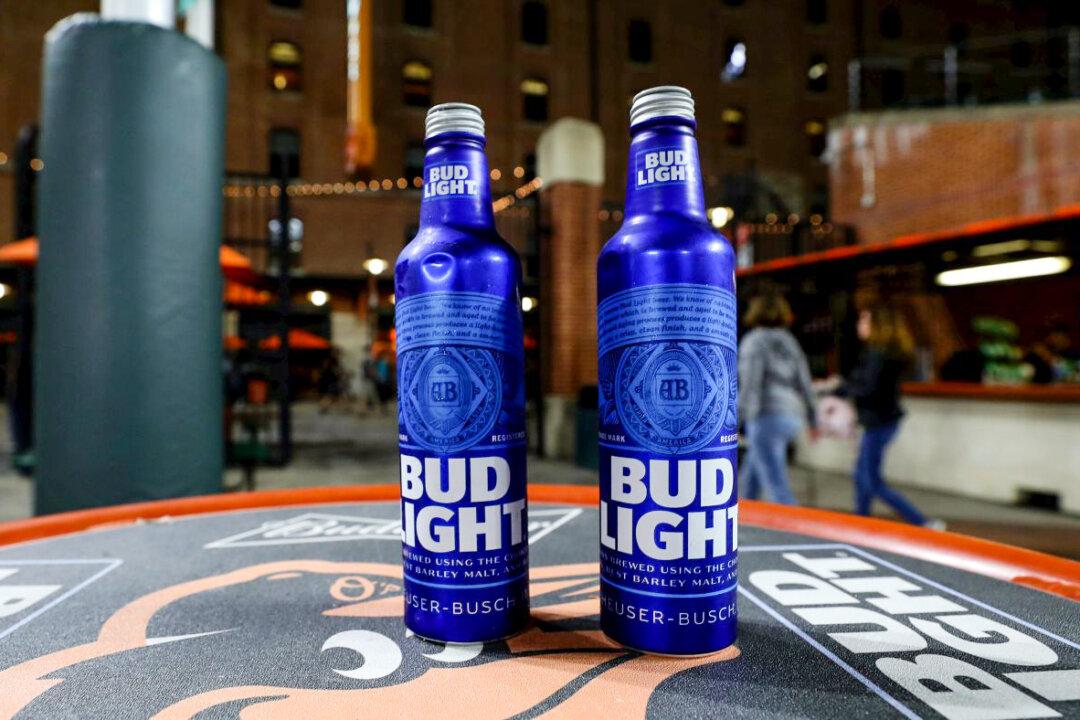Some of Bud Light’s problems in the wake of a boycott over its partnership with Dylan Mulvaney could be permanent, according to an analyst in a new note about the beleaguered brand.
“We believe recent underperformance implies a permanent reduction in ABI’s U.S. business,” Deutsche Bank analyst Mitch Collett wrote for Barron’s, referring to Anheuser-Busch InBev, the parent company of Bud Light. “Our proprietary survey data suggests these headwinds are likely to fade even if we do not expect the U.S. business ever to fully recover from its current challenges.”





